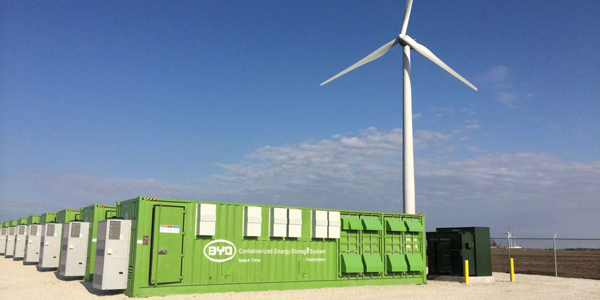By Tom Kleckner
FERC on Thursday issued its first two orders implementing its rulemaking to eliminate barriers to energy storage’s participation in wholesale electric markets (ER19-460, et al., ER19-469, et al.).
The commission “found that both SPP’s and PJM’s proposals generally enable electric storage resources to provide all services they are capable of providing; allow electric storage resources to be compensated for those services in the same manner as other resources; and appropriately recognize the unique physical and operational characteristics of electric storage resources,” it said in a statement.
FERC also found that the RTOs’ tariffs “generally satisfy” Order 841’s directive to allow storage resources to derate their capacity to meet minimum run-time requirements. But it also required the two RTOs to incorporate in their tariffs their rules and practices regarding minimum run-time requirements for resource adequacy (SPP) and capacity (PJM) for all resource types. Those compliance filings are due 45 days from the publication of the directives in the Federal Register.
The commission also established a paper hearing procedure to investigate whether PJM’s 10-hour minimum run-time requirement is unjust and unreasonable as applied to capacity storage resources.
Even though Order 841 didn’t require that RTOs make specific changes to their minimum run-time requirements, the requirements affect rates, terms and conditions of service, and therefore they must be included in the tariffs, the commission said.
The commission accepted SPP’s request for nine months to implement its proposal, but it rejected the RTO’s proposed provisions related to aggregation of storage resources, as Order 841 did not address aggregation. It gave SPP 60 days to submit a compliance filing removing the provisions.
In PJM’s case, its original Dec. 3 effective date still stands, but FERC gave the RTO the opportunity to propose a new date based on the results of the paper hearing.
“I view storage as a key part of our energy future,” FERC Chair Neil Chatterjee said before a staff presentation on the orders. “I firmly believe we’re taking the right and necessary steps to unleash the potential of storage technologies.”
Staff said Order 841’s reforms more effectively integrate storage resources into RTO/ISO markets, improve competition and help ensure just and reasonable rates.
The commission issued the order last year. It requires each RTO and ISO to ensure storage resources are eligible to provide all energy, capacity or ancillary services of which they are capable, while also enabling them to set clearing prices as both a buyer and seller. (See FERC Rules to Boost Storage Role in Markets.)
Grid operators will also need to establish a minimum threshold for participation that doesn’t exceed 100 kW and are required to allow the resources to resell electricity into the markets at the wholesale LMP.
Commissioner Bernard McNamee filed nearly identical statements in both dockets, concurring with the grid operators’ compliance but expressing his “continuing concern” that FERC had exceeded its statutory authority by not allowing states to determine whether storage may use distribution facilities to access the wholesale markets.
The commission “should have, at the very least, provided states the opportunity to opt-out of the participation model created by the storage orders,” McNamee said.
McNamee was not on the commission at the time Order 841 was issued, but he filed a partial dissent in May when FERC rejected multiple requests to reconsider the order with Order 841-A. (See FERC Upholds Electric Storage Order.)
McNamee also noted the commission’s storage orders are under judicial review. State regulators, utilities and public power groups in July asked the D.C. Circuit Court of Appeals to overturn the rulemaking, challenging the commission’s refusal to allow states to opt out. (See States, Public Power Challenge FERC Storage Rule.)





